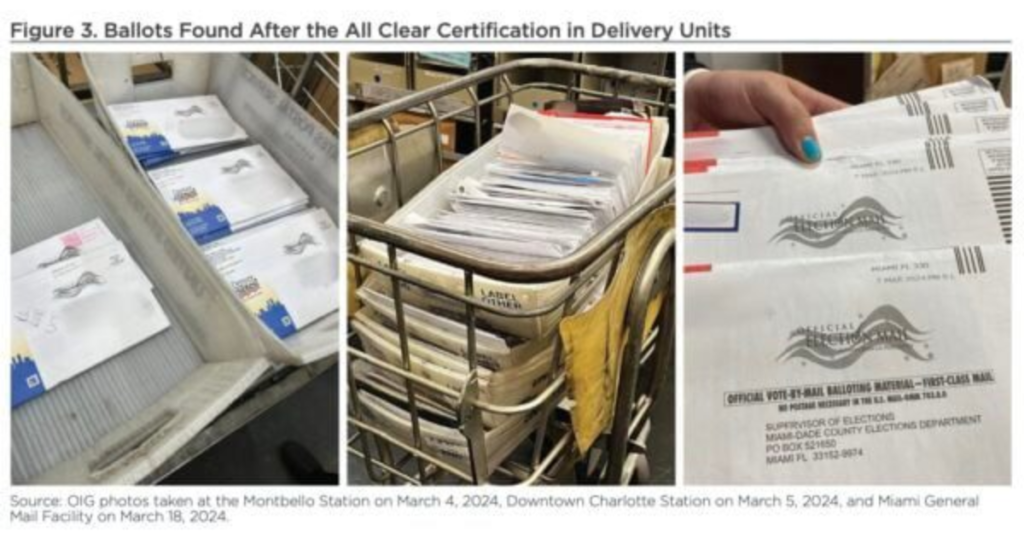Jay Valentine, in his guest post at StopBogusBallots.com, emphasizes a troubling paradigm regarding election integrity, particularly for the upcoming 2024 elections. He indicates a strategic advantage held by NGOs that are orchestrating the inflow of fraudulent ballots, primarily through mail-in voting. According to Valentine, while the Republican National Committee (RNC) and Trump’s campaign allocate immense resources to combat in-person voting fraud—estimated to constitute less than 5% of election fraud—95% of the fraud will stem from mail-in ballots facilitated by NGOs. He asserts that Trump’s campaign is significantly outmatched in this regard, as they are ill-equipped and unaware of the methods utilized by these NGOs to undermine their chances at victory.
Valentine argues that the political theater surrounding Democratic panic is misleading, claiming that what may appear as a disorganized electoral response is in fact a smooth operation by well-funded NGOs. He describes these entities as having abundant financial resources, enabling them to work systematically and effectively, while Republican efforts are hamstrung by lack of funding and strategic vision. He highlights the poor positioning of the campaign players around Trump, suggesting that the RNC and conservative groups are squandering funds on ineffective outreach instead of focusing on the core issue of ballot integrity. Valentine’s contention is that, unless alternative measures are taken to expose and counteract these NGOs’ machinations, key states like Wisconsin, Pennsylvania, and Michigan may tilt in favor of Democrats despite any Republican leads in the polls.
The author delves further into the ramifications of this imbalance, identifying a critical failure in Republican strategy and organization. He believes that Republican donors prefer funding traditional campaign activities rather than robust defenses against voter fraud. This misallocation of resources underscores a systemic problem: while left-leaning organizations mobilize effectively, the right struggles to unite and organize against a common threat. Valentine portrays this landscape as daunting for Trump’s re-election prospects, particularly in battleground states, where he fears a considerable influence from NGOs. He provides an example: PowerPac, a leftist NGO in Wisconsin, confidently operates with no fear of confrontation or consequence, implying a level of efficacy that Trump and his team cannot seem to match.
In addressing the larger picture of election integrity, Valentine details the infrastructure established by these NGOs to accumulate voter data systematically over years. The ability to collect names and addresses is cited as a pivotal factor that will heavily influence the outcome of the election, thanks to outsize access to capital and organized effort. He warns Republicans that the Democrats’ strategic advantage—enhanced by over 1.4 million anomalous ballots—will be especially potent when paired with the NGOs’ extensive outreach and data capabilities. This concern points not only to the present election, but also to an ongoing trend where systemic issues regarding ballot integrity remain inadequately addressed by Republican leadership.
Despite the challenges faced by the Trump campaign and Republicans at large, Valentine expresses an unwavering belief that asymmetrical warfare can yield effective results. He asserts that they possess a significant informational edge rooted in data collection technology that enables rapid analysis, which could thwart NGO operations. He announces an initiative to publish cast ballot rolls from targeted swing states, thus leveraging technology to expose fraudulent activity. Through this groundbreaking approach—scanning voter databases to confirm anomalies—Valentine aims to reveal how many ballots may have been counted inappropriately, highlighting discrepancies linked to undeliverable addresses, which could provide compelling evidence in electoral disputes.
The potential implications of this initiative set the stage for an unusual election environment in which grassroots movements can challenge conventional power structures. Valentine believes that by exposing the systemic vulnerabilities enabled by NGO activity, his organization can mobilize essential political discourse around election integrity. The urgency to act before Election Day is paramount, with a forecasted showdown hinging on how many inflated ballots the NGOs intend to submit. In closing, Valentine frames this period as a moment of critical engagement for concerned citizens, advocating for their support to leverage technological tools to challenge the perceived corruption within the electoral process, and to redefine the nature of the upcoming election through rigorous data-driven oversight.
In summary, the article unpacks a multi-faceted concern about the influence of NGOs on electoral integrity, especially regarding mail-in voting fraud. With a critical eye on both the failures and potential of different political strategies, Valentine urges for corrective measures to counterbalance the power dynamics at play. He outlines a plan to leverage technology in exposing voter fraud, framing this as a David versus Goliath scenario where grassroots efforts could indeed reshape the electoral landscape come November.

